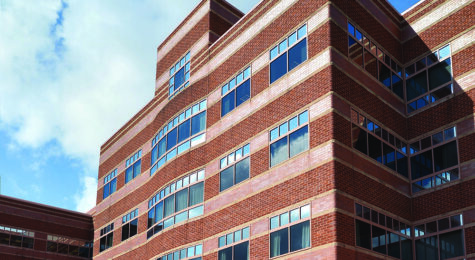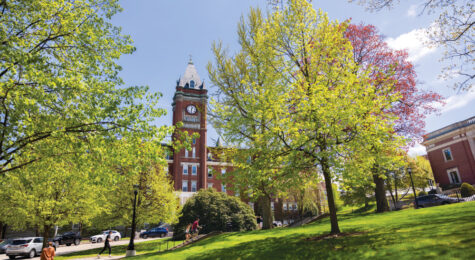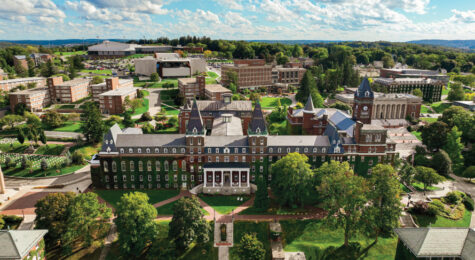Life Science in Worcester, MA: A Hub of Innovation
Explore why the biotech industry is booming in this Central Massachusetts city.
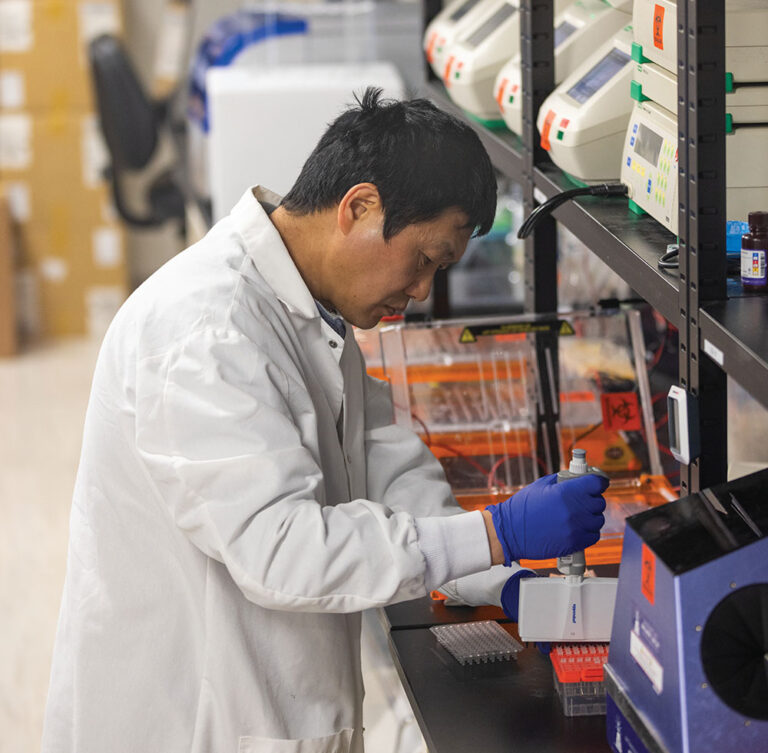
Home to over 60 biotech companies and supported by the UMass Chan Medical School and a cadre of higher education institutions with life science programs, Worcester, MA, is a hub of innovation in this fast-growing industry.
Worcester was listed in 2022 by real estate and investment firm CBRE as No. 15 among the top U.S. metros for life sciences research talent. The CBRE report said life sciences research jobs grew 79% nationally between 2001 and 2021, with Worcester having “some of the strongest concentrations of various life sciences researchers in the nation.”
“Worcester gives emerging companies access to talented researchers and professionals from colleges and universities, and the community is dedicated to continuing to build the future of the workforce pipeline in unique and innovative ways,” says Jon Weaver, president and CEO of Massachusetts Biomedical Initiatives (MBI), an organization that promotes and fosters the growth of startup biomedical companies in Central Massachusetts.
MBI has helped over 150 companies and created over 2,500 jobs.
On the Grow
According to MBI, Worcester County had the highest job growth percentage in biomanufacturing in 2020 at 7.9%, and its research and development employment grew by 4.6%.
A Great Location
Several life sciences companies are experiencing success in the region, including AbbVie. The biotech firm has 1,200 employees in Worcester along with a small site in Cambridge.
“Our mission is to discover and develop pharmaceutical drugs that make a huge difference in the world,” says Jorgo Tollkuci, AbbVie operations training and talent pipelining manager. “Our AbbVie Bioresearch Center in Worcester is all about R&D and biomanufacturing operations, doing whatever we can to help patients around the world.”
One of the many pharmaceutical products developed by AbbVie is Humira, a drug used to treat inflammatory conditions in adults such as rheumatoid arthritis. Another AbbVie drug is Skyrizi, a prescription medicine used to treat adults with plaque psoriasis.
“It is inspirational whenever we see patients talk about how the medications made at AbbVie have positively impacted their lives,” Tollkuci says.
He adds that for the Fall 2023 college semester, AbbVie launched a biomanufacturing certificate program at Worcester State University to attract more students toward careers in biotech. Students learn the responsibilities of what it takes to be a biomanufacturing technician in areas such as cell culture, purification, quality assurance, quality control and more.
“Predictions say that 40,000 additional jobs will open in this industry in the next few years, which is a large number to fill,” Tollkuci says. “AbbVie launched the biomanufacturing certificate program at Worcester State, and once we make it into a golden model program, we want to make it available to the other area colleges and universities.”
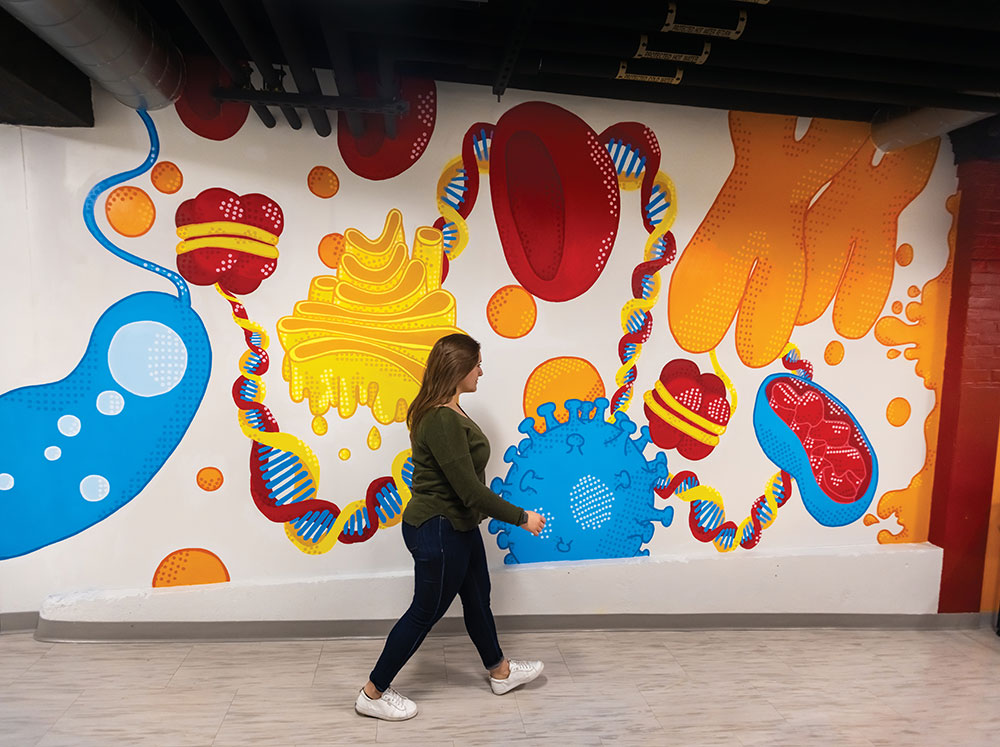
Expansion Opportunities
As the second-largest metro in Massachusetts, Worcester has a thriving present and an innovative future. The CBRE report noted Worcester as among the smaller markets benefitting from a pool of highly educated talent, high concentrations of researchers and proximity to major metros such as Boston-Cambridge.
“Massachusetts is lucky to be home to multiple world-class biotech cities,” Weaver says. “Worcester and Cambridge complement each other to make Massachusetts the destination for life sciences.”
Another of Worcester’s advantages is affordable laboratory and office space. Life sciences space in Worcester is leased at half the price of Boston labs.
The Reactory, a 46-acre, master-planned development located alongside UMass Medicine Science Park and UMass Chan Medical School in Worcester, offers eight shovel-ready parcels dedicated to biomanufacturing. It can accommodate up to 470,000 square feet of manufacturing facilities.
Developed by the Worcester Business Development Corp., The Reactory pads already have utilities and permits in place.
The first tenant is China-based contract research, development and manufacturing organization WuXi Biologics. It is investing $300 million in a 189,000-square-foot clinical biomanufacturing suite. The facility is expected to be completed in 2024.
Galaxy Life Sciences, a developer that specializes in sites for life science companies, is building a $50 million structure on a 6 acres at The Reactory, which will be for lease.
“The Galaxy Life Building at The Reactory is within a 4-mile cluster of life sciences along the Belmont Street and Reactory Drive area of the city,” says Michael C. O’Brien, principal at Galaxy Life Sciences. “This area is a prime location for life science growth, offering affordable housing opportunities, numerous amenities, and several colleges committed to providing talent and education to fill job requirements.”
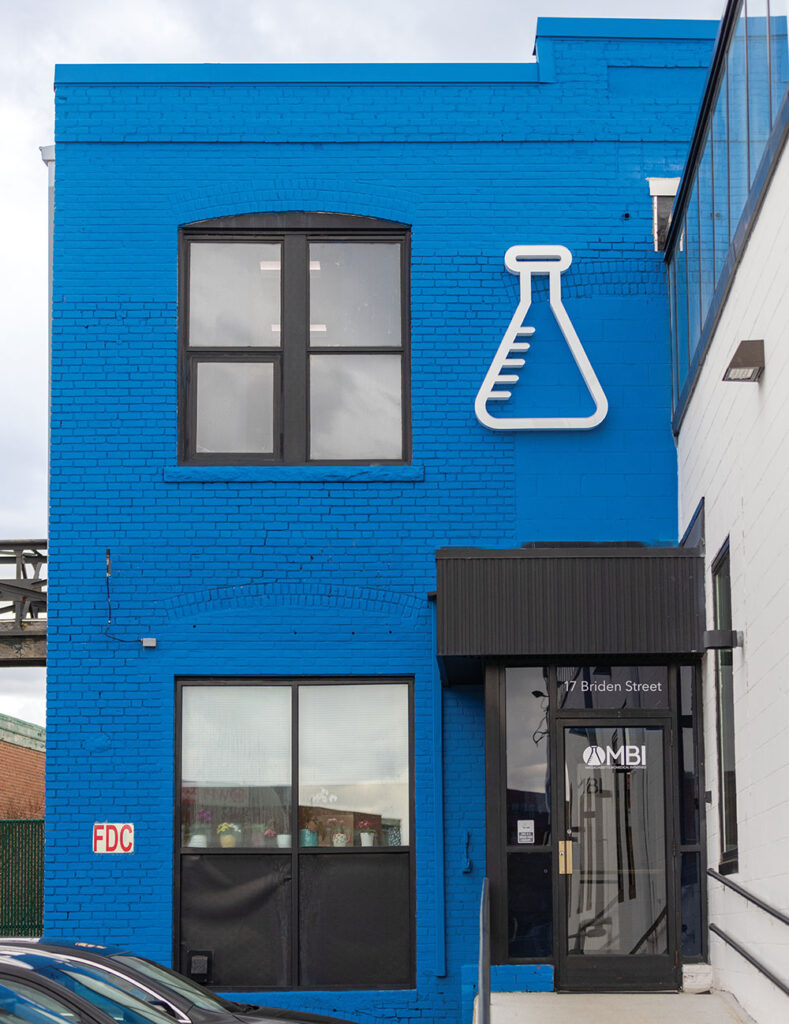
Enabling a Bright Future
Massachusetts Biomedical Initiatives (MBI) is a Worcester-based organization that promotes and fosters the growth of startup biomedical companies in Central Massachusetts. MBI assists startup biomedical companies by providing them with laboratory space.
Since 2000, MBI has helped launch 117 companies and create more than 550 jobs – the majority of which remain in Worcester County or Massachusetts.

Rachit Ohri
MBI assisted Rachit Ohri, a chemical engineer who established a company called Enable Life Sciences, which offers a number of services including research and development project management for clients in the medical device, pharmaceuticals, biotechnology, diagnostics, health care delivery and other life science fields.
How has the Massachusetts Biomedical Initiatives helped you on your research journey?
MBI has been a huge platform for advancing from where we started six years ago. I began working in the smallest lab that MBI offers – it wasn’t much larger than a closet – and I will now be among the first to move into MBI’s new Biomanufacturing Center in Worcester that opens in 2023.
How is your company doing during its time at MBI?
Very well. We recently secured the University of Wisconsin-Madison to be our first clinical trial customer for one of our medical-based products, and we are also working on another exciting antibody product that we haven’t announced yet.
You are originally from India, and 22% of Worcester’s population was born outside the United States. Do you find the city welcoming to immigrants?
Yes, that welcoming spirit has allowed me to hire a diverse group of talented workers at Enable Life Sciences. I appreciate Worcester for having that attractive diverse quality in place.
What impresses you about the available talent pool in the Worcester region?
Worcester has several top institutions with excellent training programs, including Worcester State University, Quinsigamond Community College and others. There is a distinct and growing talent pool that is available to innovative companies in the Worcester area.
– Staff writer Kevin Litwin contributed to this article.
Get to Know Worcester
Want to learn more about living and working in Worcester, MA? Check out the latest edition of Livability Worcester, Massachusetts.

